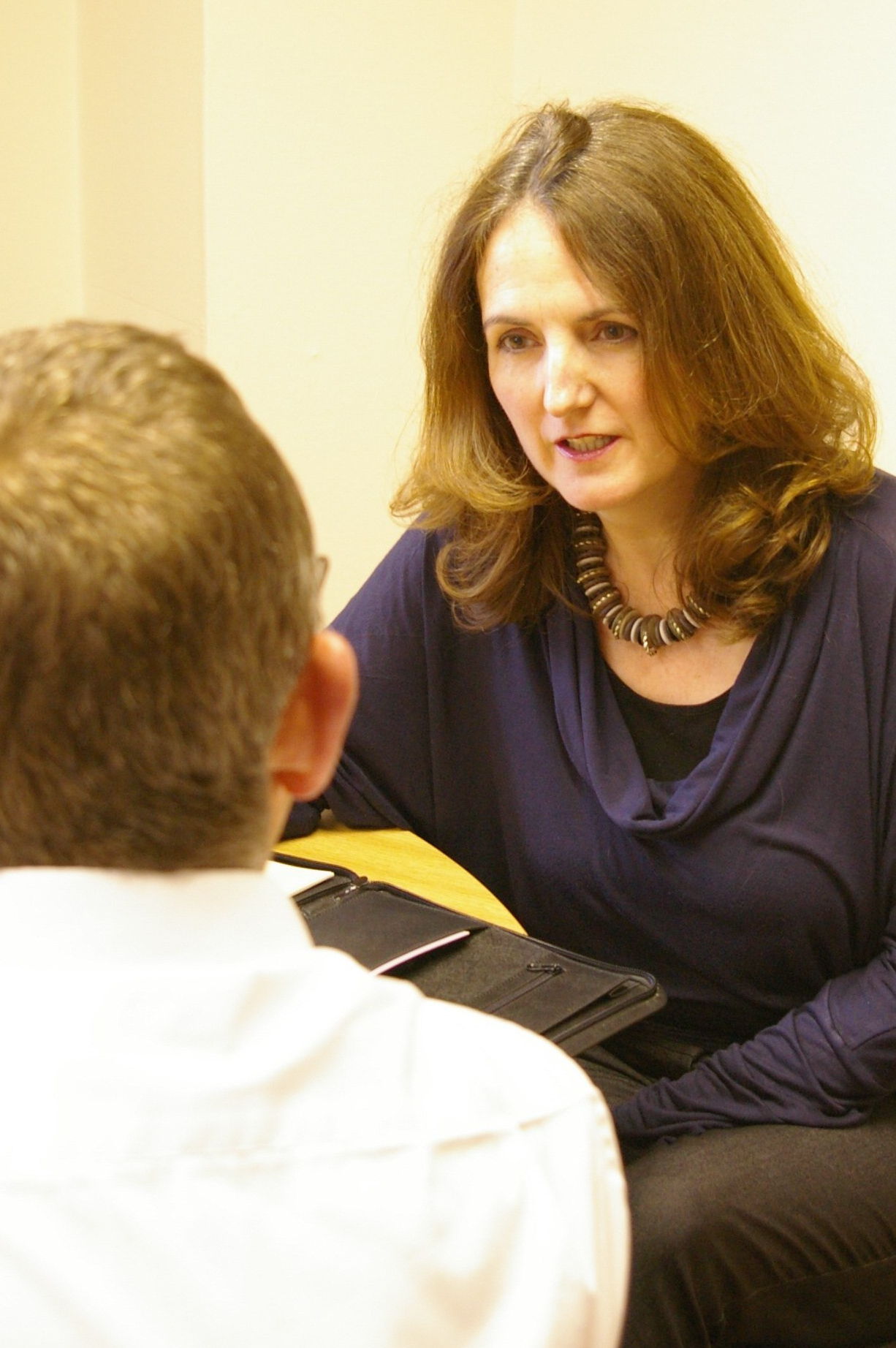Leadership coaching.
When you’re a leader, how do you know if you’re getting it right? Are you focussing on the right things? Role modelling the right behaviours, having sufficient influence? And who do you turn to when you need to think things through?
This is where leadership coaching comes in. Here are four situations where you might need a coach.




Executive Sounding Board.
It can be lonely at the top. If you run an organisation who have you really got to confide in? Where do you go to get your ideas tested, to unravel knotty problems, to get a different perspective? Using a coach as a sounding board ensures that you block time in your diary to think about the important stuff, not just the urgent and the day-to-day. It keeps you accountable to yourself and ensures you don’t get too narrow in your thinking. I often use my go-to leadership model to help clients review what happens in their organisation and identify where to focus their effort and attention right now. Time and again what my clients tell me they value most is my ability to help them get to the heart of the matter.
Talk to me today about coaching as an executive sounding board.
Newly Appointed Leaders.
When you’ve just been appointed to a senior role, all eyes are on you. If you’re new to the organisation, what you do in the first weeks and months will set your reputation possibly for years. If you’ve been promoted from within, you’ll need to re-calibrate your relationships with people who used to be your peers and may need to shift people’s perceptions of you. Either situation is a challenge and one where a leadership coach can add real value. A developmental assessment can be a useful starting point, as it gives additional information into where your strengths and development areas might lie and uncovers any blind spots. In some cases, my clients already have this information as I assessed them as part of the selection process that got them the job. This three-part case study is a typical example.
Talk to me today about coaching for newly appointed leaders.



Aspiring Leaders.
If you’re at mid-career stage, looking to develop as a leader you might use coaching to work on specific skills, such as delegation, time management, business development or broadening your strategic perspective. But I’d also encourage you to look at who you really are and what kind of leader you’re going to be.
Nobody is good at all aspects of leadership, so work out where your greatest contribution will be. Are you a big picture strategist? Are you red hot at operational delivery, are you a fantastic relationship builder? How will you capitalise on these strengths, what level can you get your weaker areas up to and who do you need to work with to pick up on the bits where you’re never going to shine? A developmental assessment is a really useful way of exploring your potential.
Talk to me today about coaching for aspiring leaders.

Confidence and Emotional Issues.
Sometimes you need coaching because something is getting in the way of you performing at your best. Often that something is you. Maybe you have imposter syndrome. Perhaps you’re struggling with the pressure of your role. Maybe you can’t control your temper and it’s affecting your reputation. These are all issues where a business psychologist can bring a greater depth of understanding than a generic coach. It’s possible that we’ll talk about your personal life or your upbringing. But this is not therapy. The aim is to see how the legacy of your past is impacting on you now and to find strategies for dealing with it, not to keep exploring the past.
I am not a clinical psychologist and I know my professional boundaries; if I think you need support beyond what I can offer I’ll direct you to other sources. But these are rarely clinical issues, it’s entirely normal to have emotions at work and many, many people, including some very successful senior leaders have difficulty from time to time regulating their feelings while doing their job. It takes courage to admit it, and address it, and it can make all the difference. If you’re getting in your own way at work talk to me today about coaching for confidence and emotional problems.
Talk to me today about coaching for confidence and emotional problems.


“Caroline provided some extremely helpful insights into my motivations and behaviour. She then went on to recommend some really useful exercises, and these have already been a great help in influencing my behaviour and attitudes.”
“I received six coaching sessions from Caroline as part of an Innovate UK scheme and they were an extremely beneficial experience. Caroline is very good at encouraging reflection and getting you to put yourself in the shoes of others. She was very good at listening to real-life, practical issues I was facing, and asking the right questions to shed light on the situation and let me come up with a solution.”
“I had a series of coaching sessions with Caroline during my first year in a new Chief Executive post. The insights that she helped me gain have proved invaluable. It was a pleasure to work with Caroline. Whilst she never failed to challenge or push me – our sessions were draining – she also never failed to engage and enthuse me.”
“Caroline has proved a very effective leadership coach, giving me insights into myself that I would not have reached on my own. The Primary Colours model, which she uses as a basis for understanding and discussing issues, worked very well as it enabled me to focus on particular aspects of leadership and explore them further in relation to real issues”
“I was coached by Caroline and found the experience absolutely invaluable. The way she prepared and followed through on each session ensured maximum benefit and reflection. She showed great insight in her questioning of me, and whilst probing was always incredibly kind.”
“Working with Caroline helped me significantly in reflecting my business behaviour towards colleagues and our management. Having someone sitting (virtually) next to you and reflecting on your interactions with colleagues was definitely helpful and a gift for me.”
“Caroline has a wonderfully warm yet analytical approach to unteasing complex situations and team dynamics. Her insights helped me refine my own leadership approach – I wholeheartedly recommend working with her”
“I benefited from Caroline’s coaching for a short three-month period when I was changing employer and role. It was a tremendously useful experience, giving me a great deal of insight, and confidence to act on that insight”.
“I have had three rounds of coaching with Caroline. I come back to her when I need a sounding board, as I really value the challenge and support she provides The leadership model she uses is an excellent framework and ensures I don’t miss anything.”

Can you be a nice leader? How to grow as a leader and develop your ‘inner Jim’
A little while ago, someone sent me an article from the Havard Business Review about the dangers of hiring a nice CEO. I found I had quite a strong reaction just to the title. I know a number of nice, decent, successful CEOs, MDs and other leaders in senior positions and was primed to leap to their defence. Were they suggesting hiring ...
Related Articles
 Part 1: A leadership coaching journey – Improving working relationships - Leadership coaching is one of the key services I offer but it's not easy to explain what it's actually like. So over the next couple of months I'm going to tell the story of one person's coaching journey to try to bring it to life. This is a real client, who has kindly given his permission (thanks "Andrew"). Whilst it… ...
Part 1: A leadership coaching journey – Improving working relationships - Leadership coaching is one of the key services I offer but it's not easy to explain what it's actually like. So over the next couple of months I'm going to tell the story of one person's coaching journey to try to bring it to life. This is a real client, who has kindly given his permission (thanks "Andrew"). Whilst it… ... Conquering your anxieties. Tiny steps of astonishing bravery - How do you make progress with those day-to-day anxieties that hold you back in life and at work? I’m thinking of those fears that seem irrational when you try to explain them to others but which can exert a great hold over you. Most of us have some niggling worries, but some people have more than their fair share to… ...
Conquering your anxieties. Tiny steps of astonishing bravery - How do you make progress with those day-to-day anxieties that hold you back in life and at work? I’m thinking of those fears that seem irrational when you try to explain them to others but which can exert a great hold over you. Most of us have some niggling worries, but some people have more than their fair share to… ...In too deep? 7 questions to judge how involved to get in a piece of work
How involved should you get in work which is not your sole responsibility? It sounds like a straightforward question, but actually it can be quite tricky to work out. I've been thinking about this lately while coaching a client I'll call Brian. Brian is a very senior manager in a large and complex organisation, who has just taken on a ...
Get in Touch
To find out more about how I can help you, use the form below to send a message and I’ll get back to you as soon as I can.



